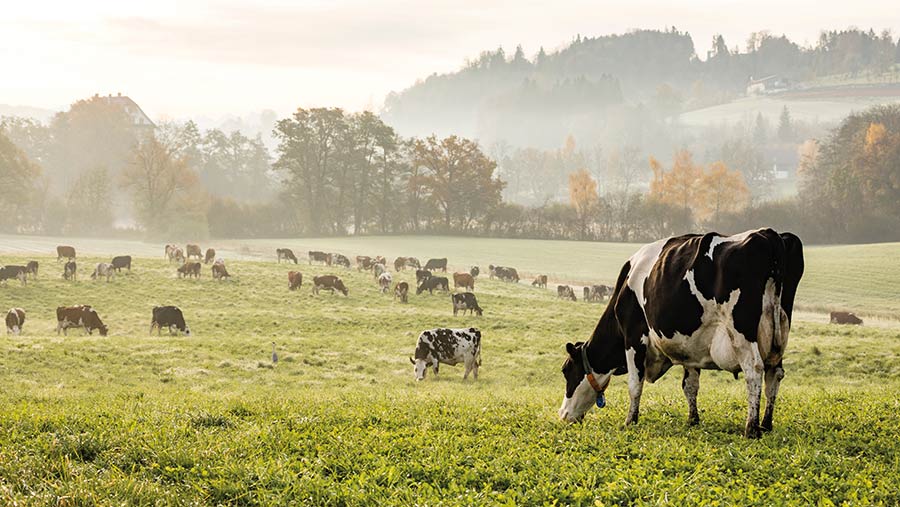Opinion: Teamwork holds the key for better dairy sustainability
 © Fredy Thurig/Adobe Stock
© Fredy Thurig/Adobe Stock It is said that a team, be it on the farm, on a sports field or in a business, can perform to a level greater than the sum of its parts.
To achieve this, team members need to be passionate about what they do, trust each other, and have a shared sense of responsibility.
The co-operative model, such as the one we have at Arla, is a great example of this in action; our farmer-owners set the long-term business strategy democratically, with the same level of attention as they plan their long-term breeding and investment decisions on farm.
See also: Advice on how to build and keep a good farm team
About the author

Paul Savage is the agricultural director at Arla Foods UK helping to drive the co-op’s sustainability agenda among its farmer owners. Here he argues for strong team work to reduce industry greenhouse gas emissions.
In this way, our farmer-owners have worked to agree the final detail on our sustainability incentive model, a move that will see them being rewarded through their milk price to motivate sustainability improvements.
It is designed to encourage farms to make incremental reductions in their emissions, to contribute to our 2030 targets and accelerate our net-zero journey.
This is a significant step and has only been possible because of how engaged our members have been with their businesses.
We need to duplicate this team approach within the wider industry.
In a world of short-term policymaking and regular ministerial change, it is up to us all to work together to understand what the dairy sector will look like in 10, 20 and 30 years’ time, and how we are going to get there.
From how we power our farms to how we recruit new people, the dairy sector requires an open mindset and a willingness to both evolve and, in some cases, dramatically change, how we operate in the future.
Not everything will work, which is why tests and trials are so important.
We know technology has a big role to play in the future of sustainable dairy and, again, we need to work together to test new innovations and share what has the potential to make a difference.
Alongside this, we need to continue to lobby the government on the importance of food security, labour and a thriving agricultural economy.
Our farmer-owners have been sharing their farm data with us via Climate Check for the past three years.
Because of this data, we know our farmer-owners are already producing milk with about half the emissions of the global average.
It is this data that also informs us on what actions we need to take to reduce emissions on farm by 30% by 2030.
We’re only going to make reductions as individual farms, as a co-op and as an industry if we are prepared to trial, fail, try again, and share our experiences and knowledge.
It is only by collaboration as a team that we will succeed in creating efficient, productive systems that deliver for farmers and consumers.
